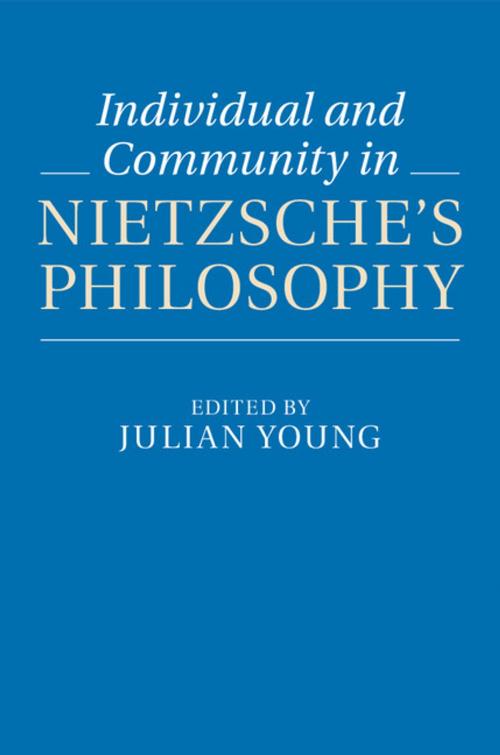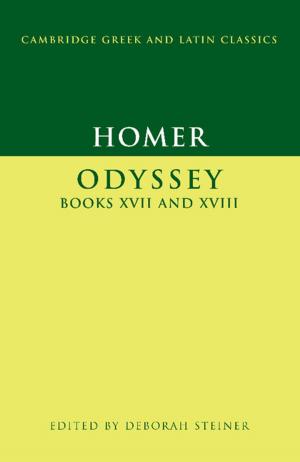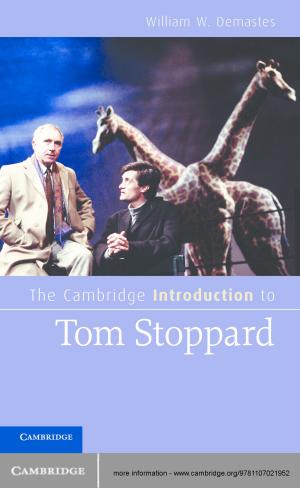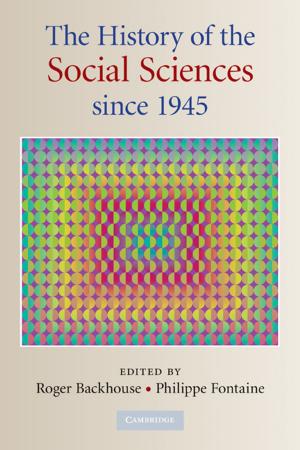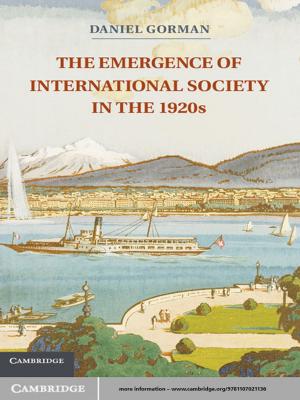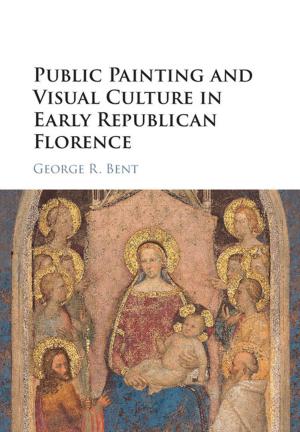Individual and Community in Nietzsche's Philosophy
Nonfiction, Religion & Spirituality, Philosophy, History, Criticism, & Surveys, Social & Cultural Studies, Political Science| Author: | ISBN: | 9781316156858 | |
| Publisher: | Cambridge University Press | Publication: | August 21, 2014 |
| Imprint: | Cambridge University Press | Language: | English |
| Author: | |
| ISBN: | 9781316156858 |
| Publisher: | Cambridge University Press |
| Publication: | August 21, 2014 |
| Imprint: | Cambridge University Press |
| Language: | English |
According to Bertrand Russell, Nietzsche's only value is the flourishing of the exceptional individual. The well-being of ordinary people is, in itself, without value. Yet there are passages in Nietzsche that appear to regard the flourishing of the community as a whole alongside, perhaps even above, that of the exceptional individual. The ten essays that comprise this volume wrestle with the tension between individual and community in Nietzsche's writings. Some defend a reading close to Russell's. Others suggest that Nietzsche's highest value is the flourishing of the community as a whole and that exceptional individuals find their highest value only in promoting that flourishing. In viewing Nietzsche from the perspective of community, the essays also cast new light on other aspects of his philosophy, for instance, his ideal of scientific research and his philosophy of language.
According to Bertrand Russell, Nietzsche's only value is the flourishing of the exceptional individual. The well-being of ordinary people is, in itself, without value. Yet there are passages in Nietzsche that appear to regard the flourishing of the community as a whole alongside, perhaps even above, that of the exceptional individual. The ten essays that comprise this volume wrestle with the tension between individual and community in Nietzsche's writings. Some defend a reading close to Russell's. Others suggest that Nietzsche's highest value is the flourishing of the community as a whole and that exceptional individuals find their highest value only in promoting that flourishing. In viewing Nietzsche from the perspective of community, the essays also cast new light on other aspects of his philosophy, for instance, his ideal of scientific research and his philosophy of language.
